The Ultimate Guide for Recycling Signs & Symbols
The recycling signs and symbols commonly seen on plastics can be confusing because most people aren’t quite sure what they mean. Everyone is familiar with the three arrows that form a triangle, but there’s always that mysterious number in the middle…just what does it mean, exactly?
Well, check out this guide as we highlight each recycling symbol and demystify the true meaning of their intent to help you make sure your plastic waste ends up in the right bin.
The Popular “Chasing Arrows” Symbol
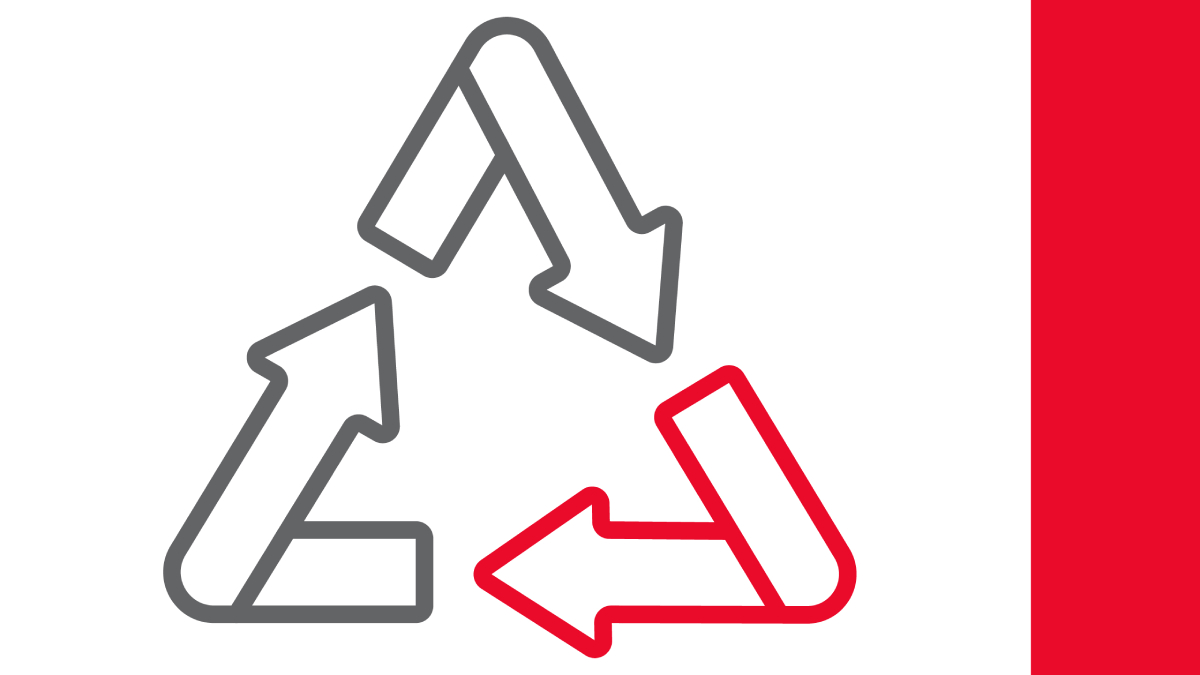
The three arrows that form a triangle that we’ve come to associate with recycling doesn’t necessarily mean that product is recyclable. This is the general recycle sign, and the number inside the symbol is what enables us to identify the specific plastic type used to manufacture the product.
The symbol has three arrows, each representing a step in the three-step process which is the recycling loop.
- The first arrow represents the first step which is the collection of recyclable materials through curbside programs or collection centers.
- The second arrow represents the second step, the manufacturing process, where the materials are made into new products for sale.
- The third arrow represents the third step, the purchase and use of the products made from recycled materials.
Now let’s look at specific symbols and their meanings.
Plastic Recycle Symbol 1: PET or PETE
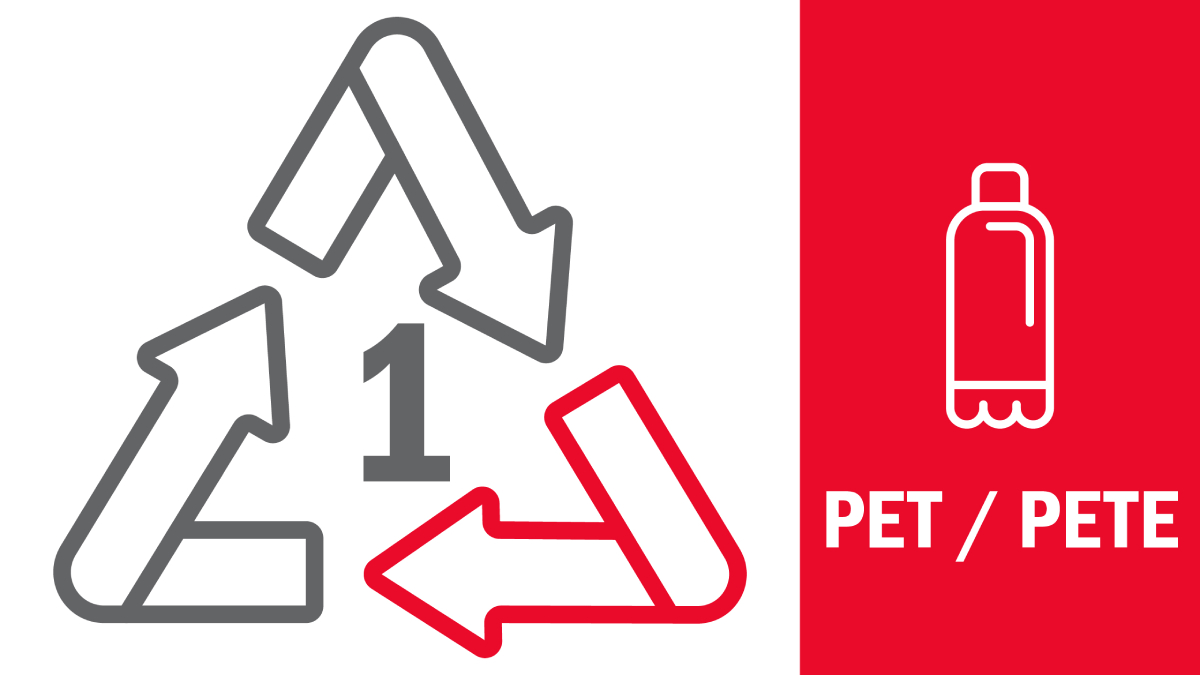
Polyethylene terephthalate (PET or PETE) is the most common thermoplastic polymer worldwide. It’s a naturally transparent plastic mostly used for beverage bottles, polyester for clothing, and packaging for foods and drinks.
PET is water resistant, inexpensive, lightweight, and does not react with food and water. It’s also easily recyclable, but its recycling rate remains relatively low, even with plenty of recycling incentives from manufacturing companies.
Items Commonly Found In
- Beverage bottles
- Clothing
- Vegetable oil bottles
- Mouthwash bottles
- Salad dressing containers
- Peanut butter containers
Recycled Into
- Clothing fiber (polyester, lycra, nylon)
- Bottles and food containers
- Tote bags
- Straps
- Paneling
- Furniture
- Carpet
How to Recycle It
PET is the easiest to recycle and is the most widely recycled type of plastic. Most of these items can be thrown into your recycling bins at home or work, provided you’ve rinsed them of any food residue.
The caps are made of a different type of plastic, but those can be recycled too. Simply, rinse out your bottle, crush it to remove any excess air in the bottle and re-attach the lid to the container. Do not bother with the labels on the bottles as they are removed during the manufacturing process.
Plastic Recycle Symbol 2: HDPE
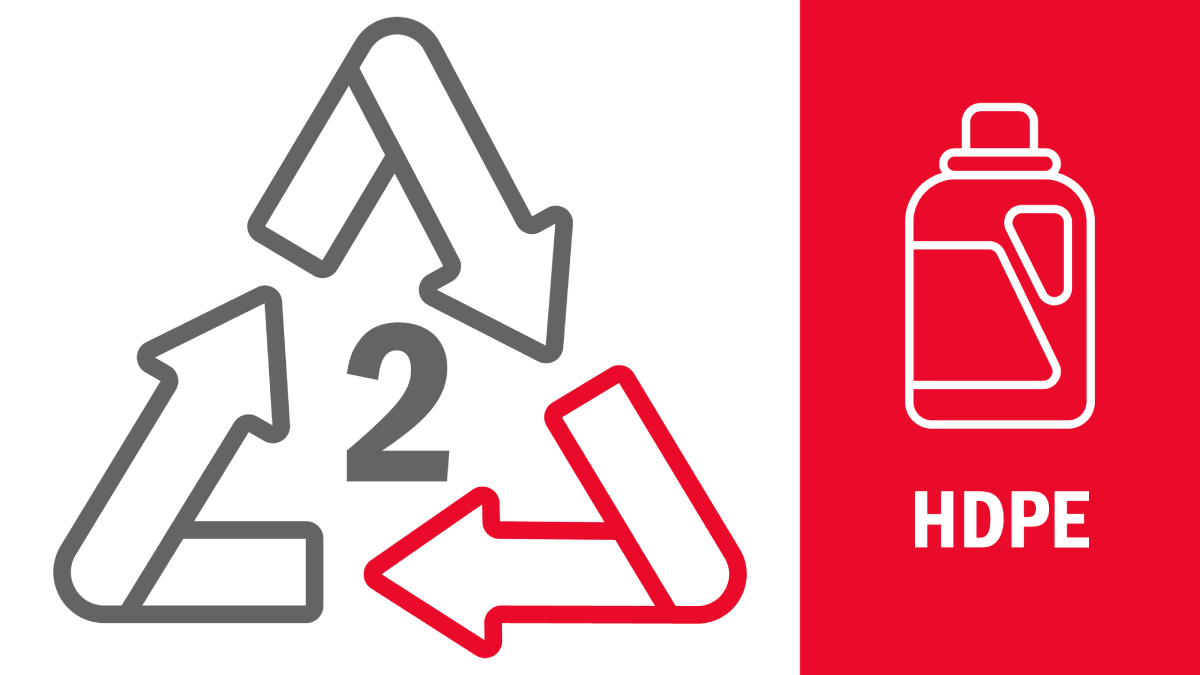
High Density Polyethylene (HDPE) is one of the most versatile thermoplastics available. It’s mostly used in packaging as a cost-effective option to replace glass or metal.
HDPE has a variety of uses, from milk jugs to bleach bottles, and can be recycled into various goods.
Items Found In
- Plastic bottle caps
- Pens
- Utility pipes
- Milk jugs
- Butter tubs
- Shampoo containers
- Ice cream tubs
- Some shopping and trash bags
- Cereal box liners
Recycled Into
- Plastic fencing
- Pens
- Bottles
- Plastic tables
- Lumber
- Drainage pipe
- Recycling containers
How to Recycle It
HDPE products are recyclable. Most of them are collected in curbside recycling programs, so you can recycle them at home, at work, or on the go. Curbside recyclers like Rumpke accept plastic bottles and jugs. Film and plastic bags are not allowed. However, there are stores and recycling centers where you can drop off plastic bags.
Plastic Recycle Symbol 3: PVC or V
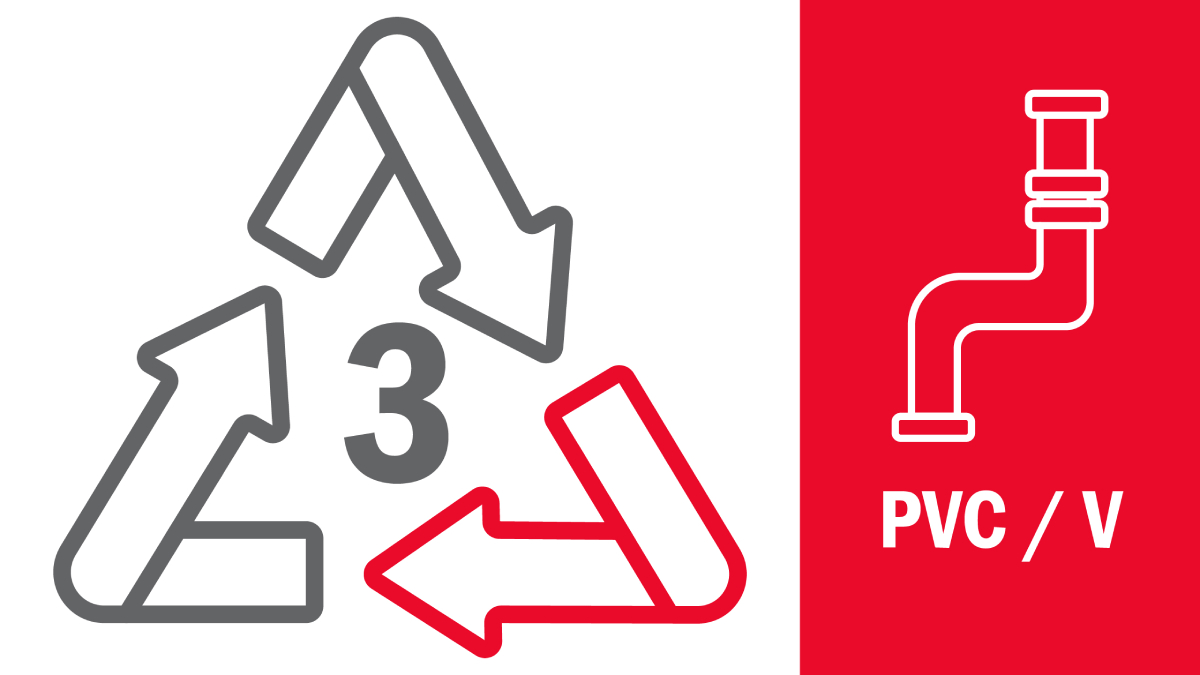
Polyvinyl Chloride (PVC) is a widely produced synthetic polymer with many applications. PVC is a versatile and cost-effective thermoplastic primarily used in the building and construction industry. It also has several everyday applications like transport and packaging.
Items Found In
- Plastic pipes
- Cling film
- Outdoor furniture
- Doors and window frames
- Blister packaging
Recycled Into
- Speed bumps
- Roadway gutters
- Paneling
- Decks
How to Recycle It
PVC is rarely recycled, mainly because it’s quite expensive and complicated to recycle. Still, some plastic lumber makers will accept PVC. If you need to dispose of PVC, get in touch with your local waste management for more information.
Note: NEVER burn PVC, as it releases toxins.
Plastic Recycle Symbol 4: LDPE
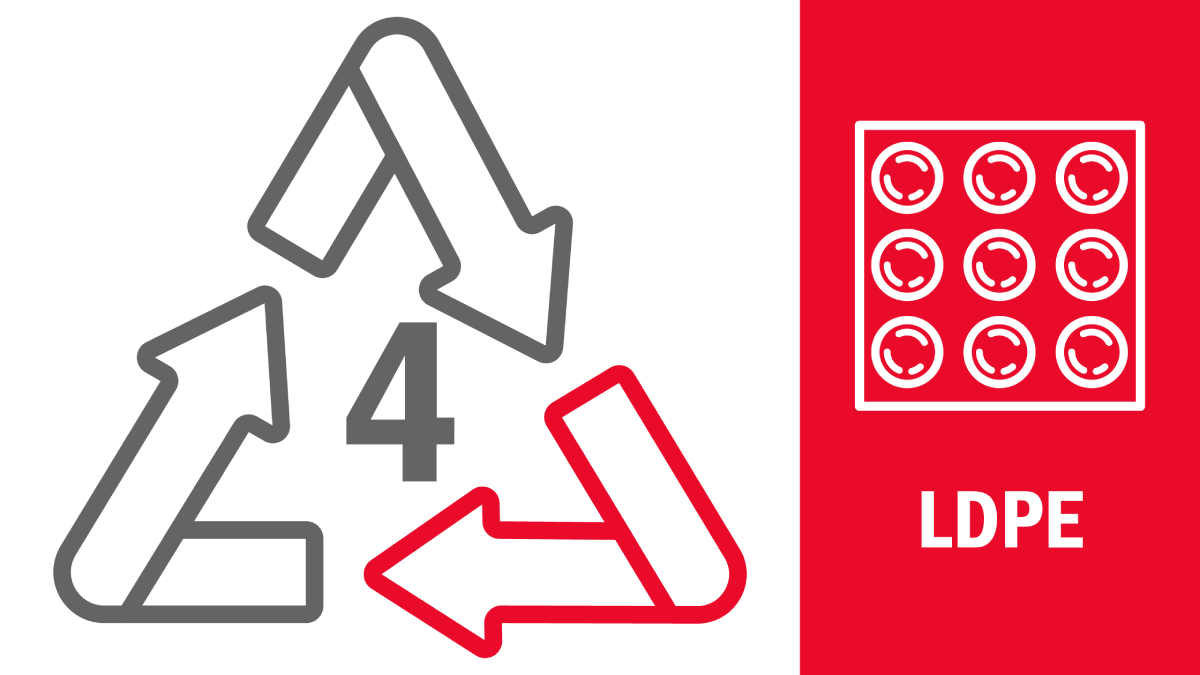
Low-Density Polyethylene (LDPE) is made from the same component as HDPE- ethylene. However, they have pretty different properties. For starters, LDPE is durable, flexible, and does not release harmful toxins. LDPE is also resistant to acids, bases, and oils, so it has more applications than HDPE.
Items Commonly Found In
- Bubble wrap
- Plastic films
- Plastic tubing
- Condiment containers
- Tote bags
- Furniture
- Shopping bags
Recycled Into
- Floor tiles
- Shipping envelopes
- Trashcan liners
- Paneling
- Compost bins
How to Recycle It
LDPE is not usually recycled through curbside programs, mainly because items like films and wraps can prove challenging to recycle. Still, some communities allow for the recycling of LDPE. In such cases, you can recycle them at home or work. Most LDPE items like tubing can just be thrown in the trash.
Plastic Recycle Symbol 5: PP
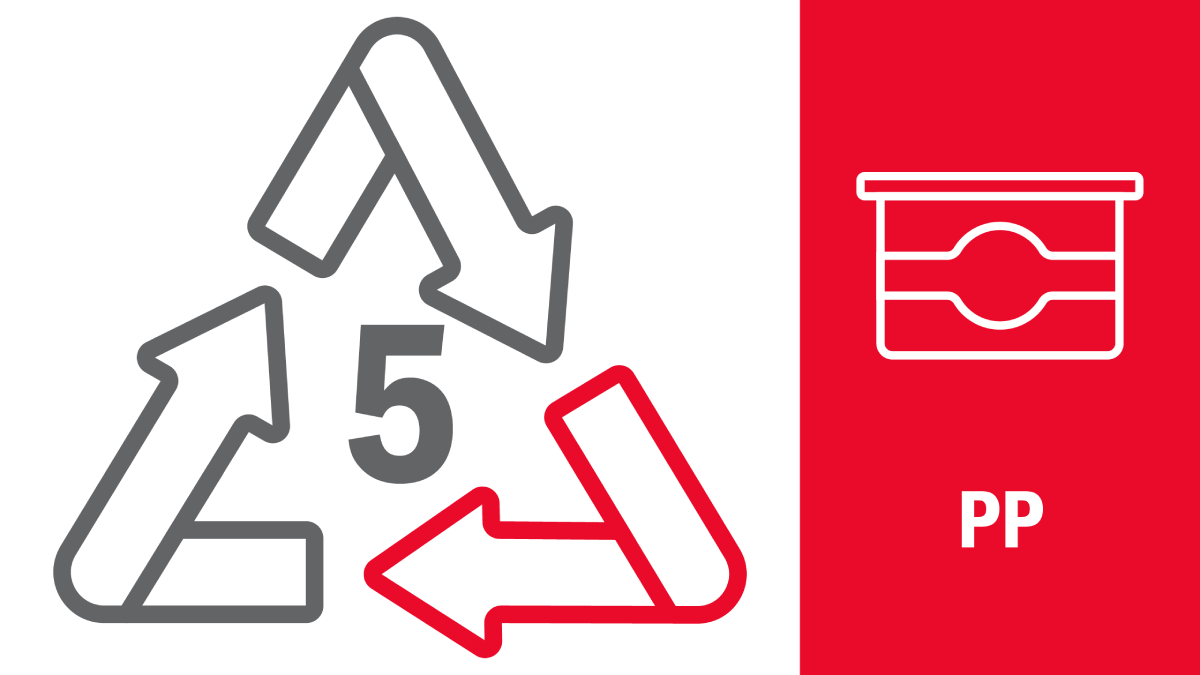
Polypropylene (PP), also known as polypropene, is a thermoplastic made using propene. It is very tough, rigid, and has a high melting point, so it’s primarily used to manufacture hot liquid containers.
PP is considered one of the safest plastics and has plenty of applications in products that require heat resistance, flexibility, and toughness.
Items Commonly Found In
- Plastic bags
- Plastic tubs
- Some plastic cups
- Straws
- Medicine bottles
- Packaging
Recycled Into
- Trays
- Rakes
- Battery cables
- Auto battery cases
- Brooms
- Bicycle racks
How to Recycle It
PP is one of the recyclable plastics, but some programs do not have it included. If your curbside program allows for PP, empty the packaging or container of any food remains before tossing it in the can. Rumpke Recycling, for example accepts both plastic tubs and plastic cups.
Plastic Recycle Symbol 6: PS
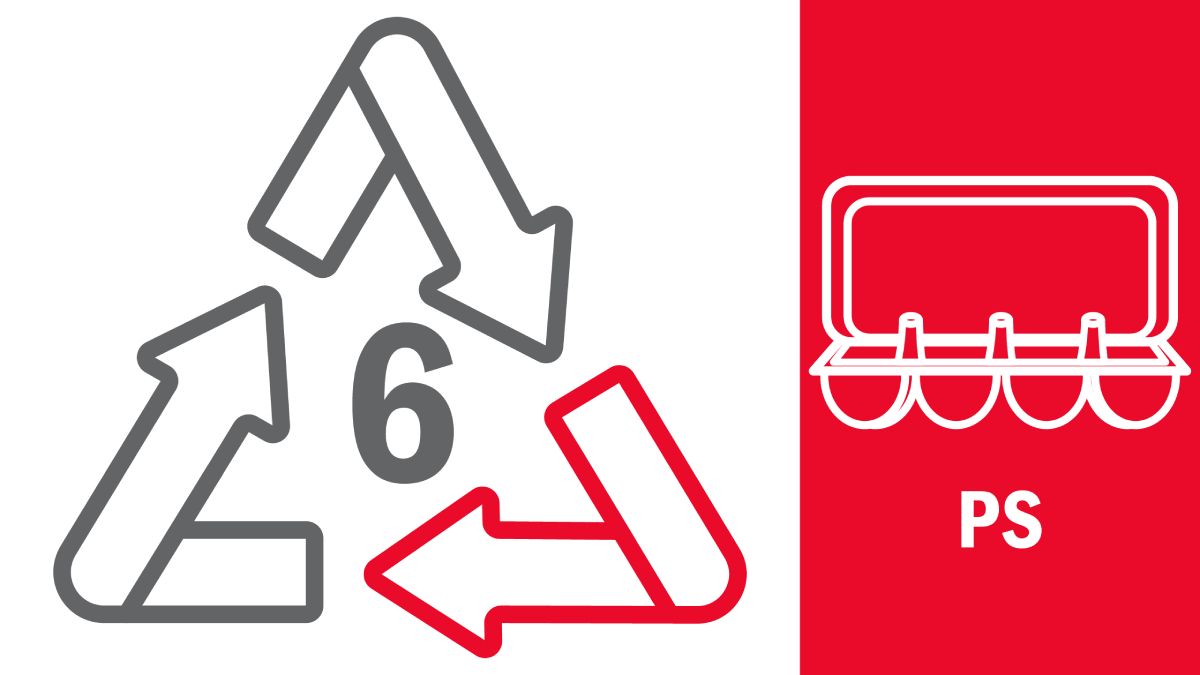
Polystyrene (PS) is a brittle, rigid, and relatively hard plastic used to manufacture various consumer goods. It has good electrical properties and can be made into foam products, commonly known as Styrofoam.
PS is primarily used in the packaging and construction industries, mainly for insulation.
Items Commonly Found In
- Egg cartons
- Meat trays
- Disposable plates
- Styrofoam
- Plastic utensils
- Car parts
- CD cases
Recycled Into
- Rulers
- Take-away containers
- Insulation
- Vents
- Egg cartons
How to Recycle It
Polystyrene is not commonly recycled, so you would mostly throw it in the garbage with the other trash. Foam products are most likely to disintegrate into small pieces, so you can put them in a bag and tie them up before throwing them in the trash to avoid having the pellets disperse everywhere.
Plastic Recycle Symbol 7: Other
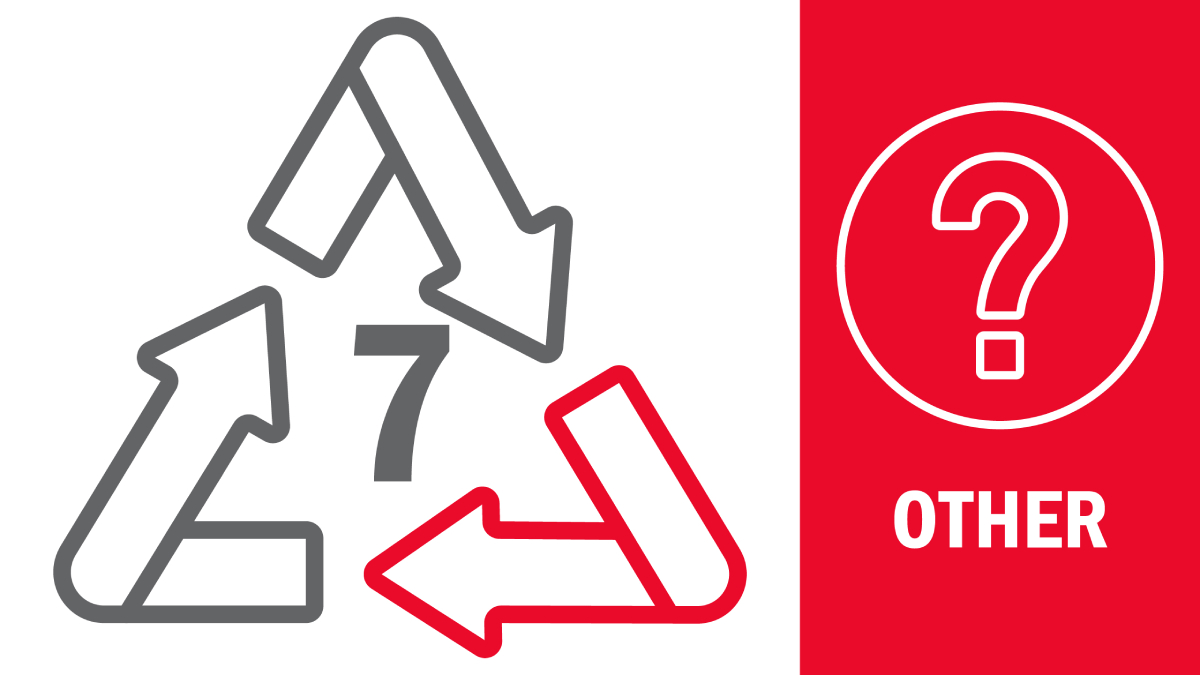
This last category is not a type of plastic but a general category for all plastic resins that do not fall into any of the previous categories. Some of the plastics that fall here can be made of a combination of 1-6 or some less commonly used plastics.
Polylactic acid and polycarbonate are good examples of resins in this category.
Items Commonly Found In
- DVDs
- Computer and iPod cases
- Nylon
- Sunglasses
- Signs and displays
Recycled Into
Custom-made products
How to Recycle It
These plastics are typically not recycled in curbside programs, so you can contact your local waste management for instructions.
Final Thoughts on Plastic Recycle Symbols
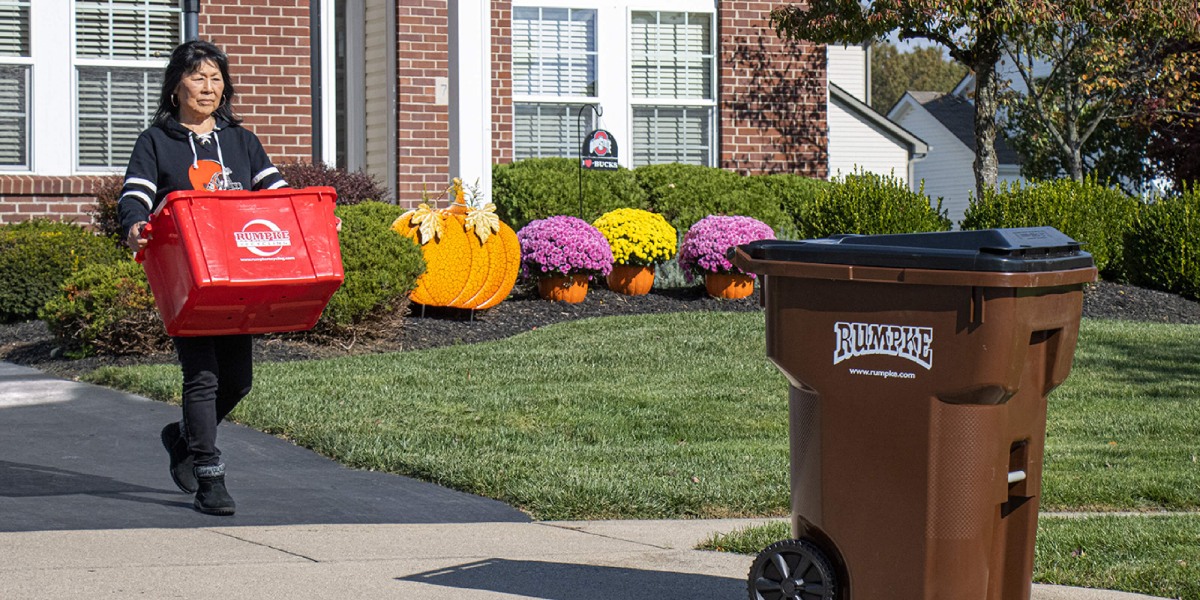
It’s essential that we all play our part in protecting our environment, and recycling plastic is one of the easiest ways to help the cause. It’s important to note that not all recycling facilities are the same, so the acceptable items may vary based on your location and service provider.
Additionally, most service providers have a list of acceptable items, so they’d require you to look at their list, not the label. Some items have the recycling symbol but are not accepted by your specific recycling service provider, so be sure to check your local recyclers list before recycling plastic items.
Learn More
Interested in learning more about what happens to your recyclables? Click below to explore Rumpke's blog for more educational opportunities and learn more about this very important yet fascinating industry.

